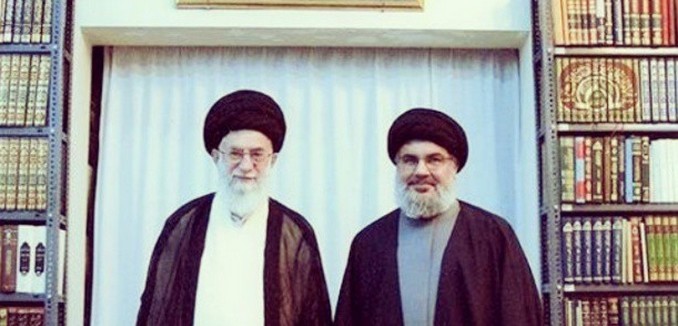Security cooperation between Sunni Arab nations and Israel “is now moving into the arena of public discourse in the Arab world,” according to Marc Sievers, a Diplomat-in-Residence at the Washington Institute for Near East Policy, who wrote an analysis last Wednesday on a column written by prominent Saudi journalist Abdulrahman al-Rashed.
Sievers’s analysis was prompted was Rashed’s assertion, following an airstrike on Hezbollah and Iranian personnel in Syria last month that was widely attributed to Israel, that “there’s no doubt that if a confrontation occurs between Israel and Hezbollah, or between Israel and Iran, many Arabs will pray for the defeat of Hezbollah’s militias and the generals of its Iranian ally.” Rashed attributed that response to Hezbollah losing its appeal as a defender of Lebanese and Palestinian interests as it became more deeply involved in defending the regime of Bashar al-Assad in the Syrian civil war, which has claimed more than 200,000 lives.
Sievers continued:
To be sure, Rashed stated clearly that this new attitude does not mean Arabs have come to love Israel, but rather that they are changing their view of the region based on the age-old concept “the enemy of my enemy is my friend.” Deeper Arab acceptance of Israel will need to wait for a peace deal with the Palestinians, he argued, but in the meantime Arabs could accept a tacit alliance with Israel in the event of a regional war with Iran.
The article is noteworthy because it indicates that well-established security cooperation between Sunni Muslim governments and Israel — which has developed steadily though largely in secret since the “Arab Spring” — is now moving into the arena of public discourse in the Arab world. And while Rashed is correct that the failure to achieve an Israeli-Palestinian peace agreement remains a barrier to popular Arab acceptance, his point about newfound appreciation of Israeli military might as a counter to Iran underscores important shifts in regional alignments.
Sievers argued that the security services of Saudi Arabia, Egypt and Jordan appreciation of Israel likely won’t filter down to citizens of those nations, “but Rashed’s analysis, and the fact that he published it openly in one of the leading Arabic newspapers, may offer new opportunities for U.S. policy.”
While Sievers asserted that friendly relations between Washington’s Arab allies and Israel are not likely in the immediate future, he sees a “glimmer of hope” implicit in Rashed’s column.
The growing ties between Israel and the Western-oriented Arab states was alluded to by Israeli Prime Minister Benjamin Netanyahu last October, when he met with President Barack Obama in the White House. In addition to fears of Iran projecting its power across the Middle East, the Sunni Arab states share concerns with Israel about the emerging nuclear deal between the West and Iran.
[Photo: Iftikh / Flickr ]




